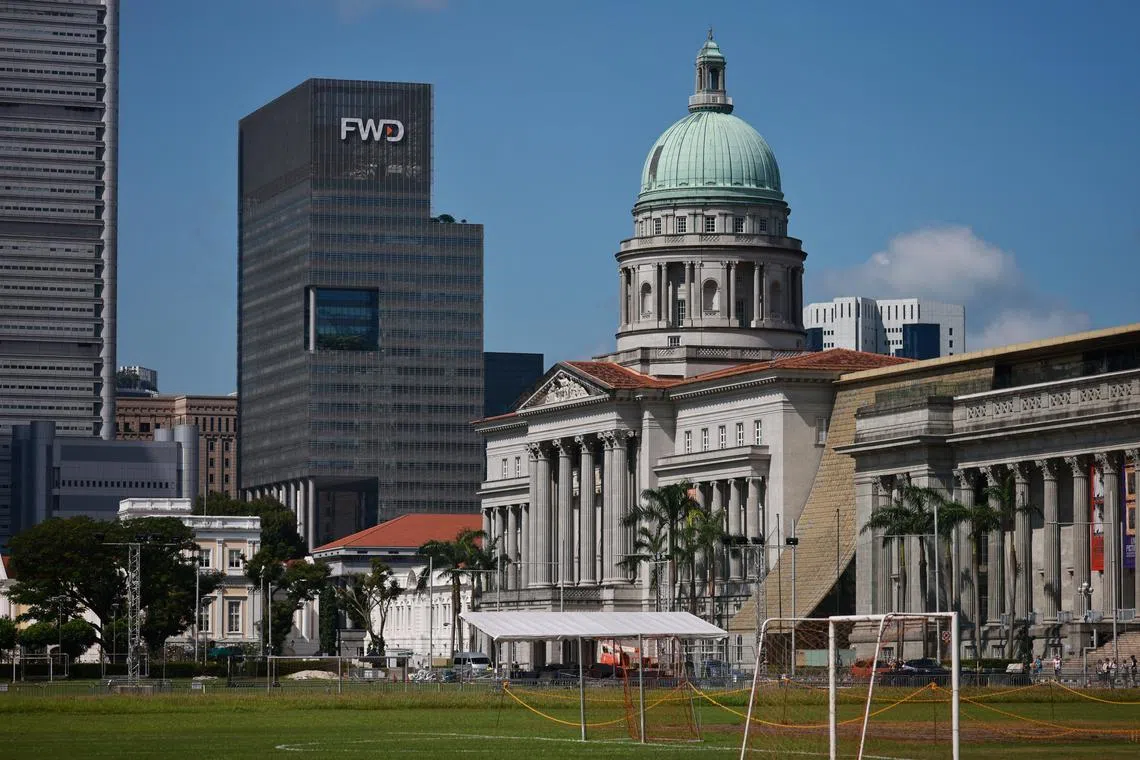Are traditional games and old building names part of Singapore’s heritage? Age may determine your answer
Sign up now: Get ST's newsletters delivered to your inbox

More than 90 per cent of the respondents agreed that Singapore’s history and heritage are important and “an intrinsic part of us”.
ST PHOTO: JASON QUAH
Follow topic:
SINGAPORE - People here have different ideas of what is associated with local heritage, depending on their age.
Asked what comes to mind when “Singapore heritage” is mentioned in an open-ended question, seniors aged 55 and older listed elements “more commonly identified with the traditional definitions of heritage” such as traditional medicinal practices and the names and stories of old buildings and monuments.
Those aged 15 to 34, however, showed a broader understanding of what constitutes heritage, according to the Heritage Awareness Survey 2022 commissioned by the National Heritage Board (NHB). Traditional sport and games, performing arts and archaeology were among the things listed by this group.
Traditional food and food culture, cultural or historic districts, and Singapore’s history and lore easily made the heritage cut across all age groups.
People were asked what they associated with Singapore heritage under a new category of questions added to the 2022 survey, to better understand the differences in heritage perceptions between generations, said NHB’s director of strategic planning and data management Marcus Chee.
“I think that because of digital consumption, the younger generation has a broader view of what heritage constitutes,” he said.
“Their understanding of heritage is a lot more complex or multifaceted than the older generation’s.”
A representative sample of 2,020 Singaporeans and permanent residents was surveyed from January to March 2022.
The survey findings will guide NHB’s preparation of its next five-year plan for the heritage sector, dubbed Our SG Heritage Plan 2.0 and slated to be launched in mid-2023, the board said on Tuesday.
For instance, NHB could focus less on educating the younger generation on the different facets of heritage because they are self-learners, said Mr Chee.
Instead, more emphasis could be placed on giving them a deeper understanding of various types of heritage.
Getting seniors to see the different aspects of heritage “will allow us to tap their institutional and historical knowledge, so that these things can be moved on and passed down to different generations”, he added.
A possible approach that the board could take would be to make museum-going an inter-generation activity, so that seniors and youth can share knowledge as they take part in various activities, Mr Chee said.
There was a strong recognition of museums’ positive contributions among those surveyed, with 93 per cent agreeing that they promote understanding of Singapore’s history, heritage and culture. Ninety-one per cent also agreed that museums help to develop a better understanding of Singapore, the region and the world.
Minister for Culture, Community and Youth Edwin Tong on Tuesday noted that more than 90 per cent of respondents agreed that Singapore’s history and heritage are important, and “an intrinsic part of us”.
“Roughly the same number said that an appreciation of our heritage and our culture increases their own sense of identity and belonging to Singapore,” he said in a speech at a ceremony to honour four stewards of intangible cultural heritage here
The responsibility of keeping heritage alive falls on everyone’s shoulders, not just practitioners or the Government, he added.
To that end, NHB said it aims to ramp up efforts to further facilitate volunteerism and contributions from members of the public, and create more opportunities for the community to co-develop heritage offerings with the board under its upcoming five-year plan.
Such efforts include an exhibition in November on Malayalees in Singapore at the Indian Heritage Centre, which will be its third exhibition co-created with an ethnic sub-group.
Dr Anitha Devi Pillai, a guest curator for the exhibition, said: “I am very grateful that minority communities are getting their voices heard, primarily because the minority voice adds to the diversity in Singapore and expands our understanding of what it means to be Indian in Singapore.”


